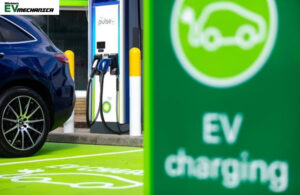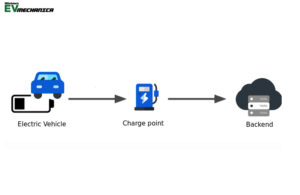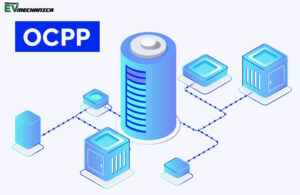 Supported under the banner of next-generation clean energy fuel, the Electric Vehicles (EVs) adoption rate is growing geometrically as charging infrastructure and its standardized EV Charging Protocols are being implemented across the globe.
Supported under the banner of next-generation clean energy fuel, the Electric Vehicles (EVs) adoption rate is growing geometrically as charging infrastructure and its standardized EV Charging Protocols are being implemented across the globe.
To get a better understanding of these protocols, EV Charging protocols are typically sets of communication standards that will define how electric vehicle charging stations communicate with electric vehicles and management systems.
These EV Charging Protocols allow for interoperability between different charging stations and vehicles, making it easier for electric vehicle drivers to access charging infrastructure.
In India, the adoption of electric vehicles is increasing, and the Indian government has set ambitious targets for the transition to electric mobility. As the electric vehicle ecosystem grows, the need for a standardized charging infrastructure becomes crucial.
Charge point operators and E-Mobility service providers are currently facing challenges in the expansion of these operators internationally especially in dealing with different protocols, regulations, and multi-currencies, and integrating roaming capabilities into their networks.
Impact of EV Charging Protocols on the Indian Ecosystem
 One of the major uses of EV Charging Protocols is that they can help facilitate the development of standardized charging infrastructure and can have a significant impact on the Indian electric vehicle ecosystem in the following ways:
One of the major uses of EV Charging Protocols is that they can help facilitate the development of standardized charging infrastructure and can have a significant impact on the Indian electric vehicle ecosystem in the following ways:
- Interoperability: With the adoption of EV Charging Protocols such as OCPP and OCPI, charging stations from different manufacturers can communicate with each other, making it easier for electric vehicle drivers to access charging infrastructure. This interoperability is critical for the development of a robust charging network.
- Advanced Features: EV Charging Protocols such as OSCP allow for advanced features such as load balancing, real-time demand response, and renewable energy integration. These features can help optimize the use of the electric grid and facilitate the integration of renewable energy sources.
- Cost Savings: Standardization of EV Charging Protocols can lead to cost savings for charging station manufacturers and electric vehicle owners. With a standardized charging infrastructure, manufacturers can develop charging stations that are compatible with different management systems, reducing costs associated with proprietary systems. Electric vehicle owners can also benefit from the availability of standardized charging infrastructure, reducing the need to invest in multiple charging cables and adapters.
Overall, the adoption of EV Charging Protocols can have a significant impact on the development of the Indian electric vehicle ecosystem, helping to create a robust and accessible charging network for electric vehicle drivers.
Types of EV Charging Protocols
Compiling a list of the most used EV charging industry standards and protocols, these protocols will give the operators the needed flexibility that will become a key enabler of future EV charging infrastructure developments.
OCPI, OCPP, and OSCP are three different EV Charging Protocols used in electric vehicle charging stations worldwide.
OCPI (Open Charge Point Interface)
 Described as one of the EV Charging Protocols, Open Charge Point Interface is an open protocol working as a communication between charging station operators and electric-mobility service providers. It allows for seamless communication and interoperability between charging networks, making it easier for EV drivers to access charging stations from different providers. OCPI supports a wide range of charging stations and enables advanced features such as dynamic pricing, reservation, and remote start/stop of charging sessions.
Described as one of the EV Charging Protocols, Open Charge Point Interface is an open protocol working as a communication between charging station operators and electric-mobility service providers. It allows for seamless communication and interoperability between charging networks, making it easier for EV drivers to access charging stations from different providers. OCPI supports a wide range of charging stations and enables advanced features such as dynamic pricing, reservation, and remote start/stop of charging sessions.
OCPP (Open Charge Point Protocol)
 Open Charge Point Protocol (OCPP) is another type of open protocol that explains the communication between EV charging stations and central management systems. It enables charging stations to communicate with a central system for remote monitoring, maintenance, and management. OCPP supports various types of charging stations, including AC and DC charging, and allows for advanced features such as load balancing, charging profiles, and firmware updates.
Open Charge Point Protocol (OCPP) is another type of open protocol that explains the communication between EV charging stations and central management systems. It enables charging stations to communicate with a central system for remote monitoring, maintenance, and management. OCPP supports various types of charging stations, including AC and DC charging, and allows for advanced features such as load balancing, charging profiles, and firmware updates.
OSCP (Open Smart Charging Protocol)
 This type of open protocol defines the communication between EV charging points and smart charging systems. It enables EV charging points to communicate with a central system for load management and optimization. OSCP supports a variety of charging stations, ranging from AC and DC charging, and will also allow for advanced features like real-time demand response, renewable energy integration, and grid services.
This type of open protocol defines the communication between EV charging points and smart charging systems. It enables EV charging points to communicate with a central system for load management and optimization. OSCP supports a variety of charging stations, ranging from AC and DC charging, and will also allow for advanced features like real-time demand response, renewable energy integration, and grid services.
Wrapping Up
All these EV Charging Protocols are open standards, meaning that they are not proprietary and can be used by any charging station or management system manufacturer.
This interoperability between different systems and providers is crucial to creating a seamless and accessible charging network for EV drivers.
